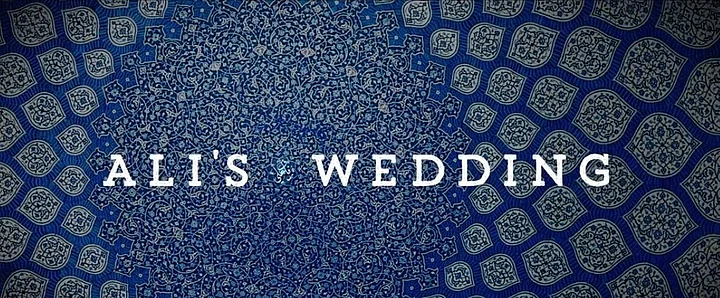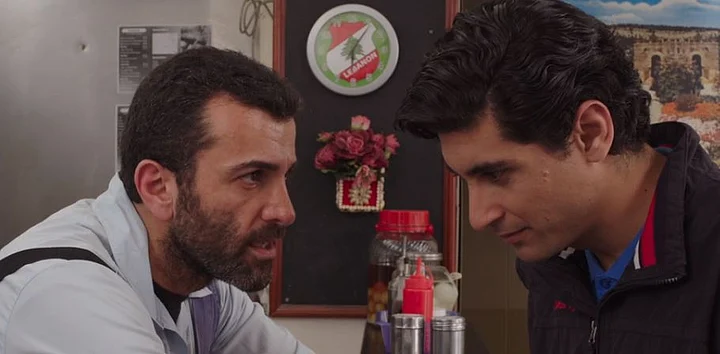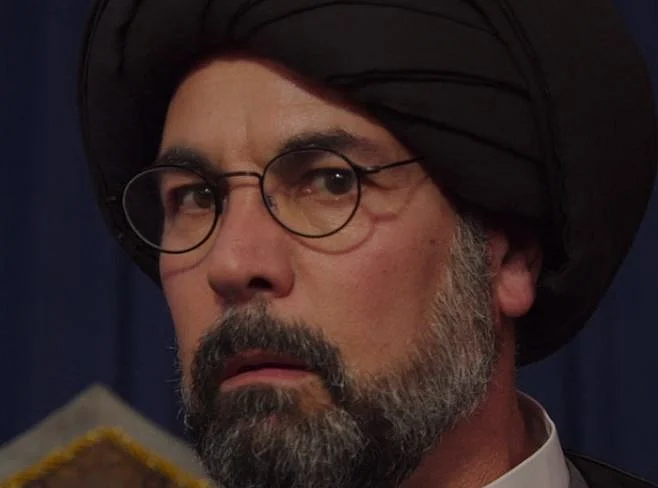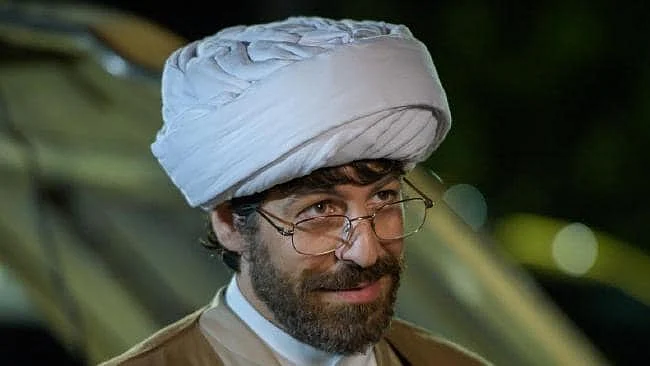Ali’s Wedding, Australia’s first Muslim romantic comedy has landed on Netflix. And it’s a surprisingly heartwarming, and well represented piece of pop culture. While it employs all the tropes of the genre, Ali’s Wedding is a haunting yet hilarious perspective on ‘immigrant’ Muslims in a predominantly white country.
Set in Melbourne, the romantic comedy is a coming-of-age tale revolving around Ali, the son of a Shia Muslim cleric.
And this is where Ali’s Wedding breaks yet another significant glass ceiling. Shia Muslims, the minority within the minority (Sunnis), are largely ignored in pop culture. But this film, with actor and writer Osamah Sami in the lead, changes that.
Adapted from the real story of Osamah Sami’s award-winning memoir, Good Muslim Boy, this Australian film is a touching tale of young love and familial duties. The protagonist (Ali) is shown as a typical underdog, who gets caught in the web of his own lies when he tells his family and community about passing his medical examination, even as he falls in love with Dianne, a Lebanese-Australian girl (played by Helana Sawires). The plot thickens when Ali’s forthcoming doctorate earns him an “arranged match” set up by his parents (leading to an inaccurate but hilarious scene around a tea-drinking ceremony).
And all this against the backdrop of a larger white Australian community with customs and a way of life starkly different from that of Ali’s family.
What really sets Ali’s Wedding apart is how it pushes boundaries while playing around the familiar dramatic tropes – the film’s opening scene for instance, has Ali driving a farm tractor - in a tuxedo - as he chases a girl at the airport.
You get a peep into the dysfunctional and messy family of a cleric and it’s a fairly recognisable portrait of an incredibly “normal” Muslim household. You have the Arab stereotype as well, but through him you peek into the inner workings of a minority community.
What’s the trick? Having a Muslim writer on board. Honestly, Sami paints the vivid picture he does only because he has an insider’s view. And this is the way to go if you are looking to meet the “diversity norms” in your content.
The Character Palette
The film takes time to etch out a handful of memorable characters. My favourite is the Arab with three wives, who gives Ali tips about “loopholes” in the system, like the controversial temporary marriage. Ali’s brilliant youngest sister, besides his congenial father (played by Australian actor Don Hany), who plays a key role in guiding his son, and shaping opinions of his community, stands out too.
The Aesthetics
The aesthetics have been delicately handled – from the imagery of turquoise-domed mosques and attire of Iraqi clerics, to women ululating in the mosque, and the recitation of Salawat (an Arabic phrase comprising the salutation upon Prophet Muhammad).
There are other liberties taken, like the practice of triple talaq, which is not accepted by the Shia community. The concept is loosely explored by way of displaying Sunni-Shia brotherhood. How? Mahdi (Don Hany), the Shia cleric guides a Sunni (Hanafi faith) brother on ways to dismiss his “triple talaq”.
- 01/02A still from Ali’s Wedding. (Photo courtesy: Netflix)
- 02/02The Lebanese clock in the background in Ali’s Wedding. (Photo courtesy: Netflix)
The Politics
Beneath the feel-good film that focuses on love, family, and duty, there is a deeper narrative in Ali’s Wedding of contemporary world politics and religion and how they affect day to day life of Muslims.
For instance, we get glimpses of Saddam Hussain’s Iraq through Ali’s father, who pulls out his family from the war-ravaged region to reach Australian shores in search for a better life.
There’s even a nuanced Syed and non-Syed narrative that plays out in the climax of the film. It’s a subtle but complex “good Muslim - bad Muslim” binary presented to highlight how honesty and good character triumph over the privilege of being born a Syed.
- 01/02The black-turbaned Syed. (Photo courtesy: Netflix)
- 02/02The white-turbaned non-Syed. (Photo courtesy: Netflix)

Politics, as in real life, weaves its way into everyday humour too - Ali tells Dianne, the girl he’s madly in love with, that if he didn’t clear his medical examinations again, he could probably become a terrorist in Hollywood because “they always need people like us to play terrorists”.
Reality is stark, even through a funny lens.
The Muslim Voice
But Ali’s Wedding transcends the Muslim theme to appeal to a universal audience. The only difference really is that we’re – for once - getting to hear a story from the minority, rather than of them.
As Sami said:
We’re spoken of, but not heard from. There’s always an opinion about us – but it’s not from us. We belong here, and we are part of the Australian narrative, but how can we assimilate, as we’re always told, if we don’t see ourselves reflected?Osamah Sami
Who knows? For a whole region and community that’s been represented uni-dimensionally for so long, romantic comedies could break barriers and pave the way for peaceful dialogue!
(At The Quint, we question everything. Play an active role in shaping our journalism by becoming a member today.)




